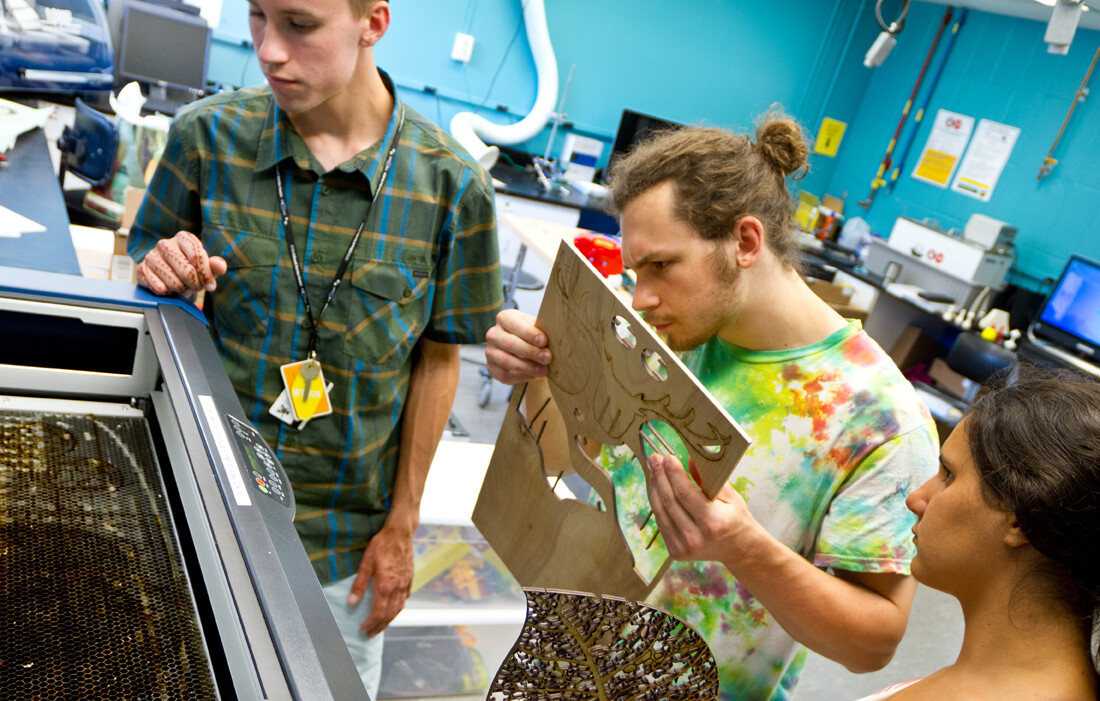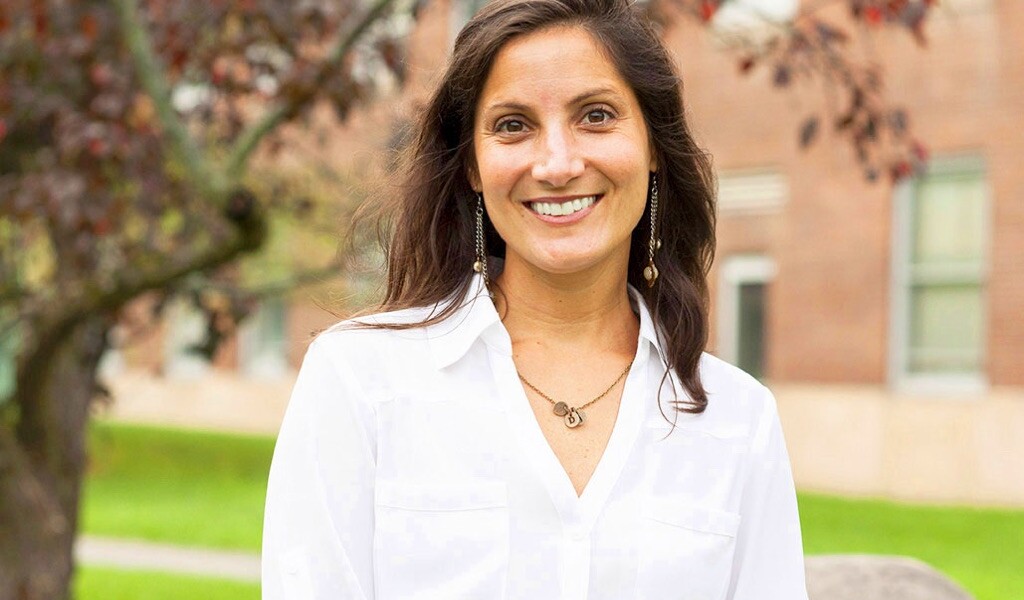Students in grades K-12 will have the opportunity to learn in maker spaces over summer vacation thanks to the development of STEAM (Science, Technology, Engineering, Arts + Math) programs at Vermont public libraries.
Fourteen public libraries from Craftsbury to Charlotte to Castleton will offer summer maker workshops for K-12 students as part of the new “Vermont Makers and Libraries: Sparking a Culture of Innovation” project. The initiative is a collaborative effort between the Vermont Department of Libraries, Vermont Makers, the University of Vermont College of Engineering and Mathematical Sciences, Vermont Library Association and CMF Innovations.
“By teaching and sharing technical literacy, we can help empower students through valuable and fun learning experiences,” said Jennifer Karson, founder of Vermont Makers and instructor with the University of Vermont Fab Lab at the College of Engineering and Mathematical Sciences. “The project encourages individual creativity, collaboration, and lifelong learning.”
Summer Workshops around Vermont
The three-hour workshops will be held between June 25 and Aug. 9 and taught by local educators trained by Karson. The libraries are each offering two of the five modules: Creative Creatures, Squishy Circuits, Toy Hacking, E-Origami, and E-textiles. Participants will learn how to use digital and physical tools to help strengthen their deductive reasoning, logical thinking, and problem-solving skills.

A $20,000 Vermont Community Foundation Innovations and Collaborations Grant and a $5,000 grant from UVM CEMS are helping to fund the program. UVM CEMS is providing space for the train-the-trainer workshops for educators as part of the Vermont Engineering Initiative, and the Vermont Department of Libraries is helping coordinate and implement the program in libraries around the state.
“The maker movement is alive and well in Vermont, and like the rest of the nation, public libraries are an important player in providing opportunities to engage in these hands-on creation programs,” said State Librarian Martha Reid of the Vermont Department of Libraries. “I love the ways that maker programs can foster intergenerational learning, introduce novices and experts alike to technology and STEM, and promote teamwork and collective problem-solving.”
Modeled after hacker spaces, a maker space is a place where young people have an opportunity to explore their own interests, learn to use tools and materials, and develop creative projects. In recent years, libraries across the country have embraced the trend to create maker spaces for communities.
The Learning Power of Maker Spaces
Librarian Susan O’Connell of the Craftsbury Public Library, who was instrumental in getting the summer program off the ground, said she first witnessed the power of maker spaces at the Champlain Valley Maker Faire two years ago.
“As a librarian and teacher, too often I see children’s scientific curiosity extinguished when science is taught as a set of facts to memorize without the thrill of exploration and discovery,” she said. “At the Champlain Valley Maker Faire, people of all ages were experimenting with trajectory with a pumpkin-chucking trebuchet, learning how to solder, and watching electricity play along a tesla coil. People were trying, sharing and exploring new ideas, and kids were incredibly excited.”
O’Connell said the idea was also inspired by the Collaborative Summer Library Program, which creates programs and activities designed to encourage children to learn and read during the summer. This summer’s theme is science.

Maker Spaces Coming to a Library Near You
Communities participating in the initiative include Bennington, Barre, Charlotte, Craftsbury, Castleton, Fairfax, Groton, Jericho, Poultney, Quechee, Richford, Warren, Westford, and Williston.
“Our goal is to make it possible for children who might not have access to this kind of programming in rural areas to engage in fun, hands-on activities and discover how science works in everyday life,” O’Connell said. “While all of the participants might not become scientists, they’ll be better prepared to thrive in our technological world.”
For more information and a list of participating libraries,
visit http://steam-e-zine.com/index.php/spark-a-culture-of-innovation.





